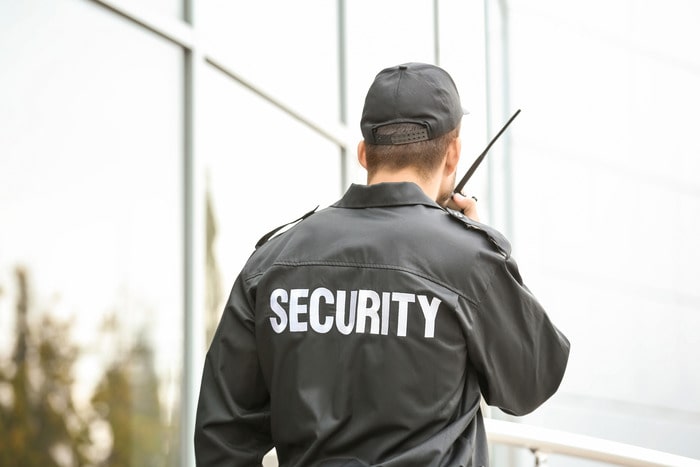

Security guards play a vital role in maintaining safety and security in various settings, including businesses , public spaces, and events. One of the most critical aspects of their responsibilities is knowing when and how to use force when necessary. At XPressGuards, we place a strong emphasis on the training and professionalism of our security personnel. In this article, we will explore the topic of whether security guards are allowed to use force when necessary, the guidelines governing such use, and best practices to ensure responsible and ethical conduct.
Understanding the Role of Security Guards
Before delving into the use of force, it’s essential to understand the primary role of security guards. Security guards are hired to protect people, property, and assets, as well as to deter and respond to security threats. Their presence alone often serves as a deterrent, but when situations escalate, they may need to take further action to protect the interests they are entrusted with safeguarding.
Legal Authority and Training
Security guards are not law enforcement officers, and their authority to use force is limited by both state and federal laws. Their use of force is typically limited to self-defense, defense of others, or the protection of property. To ensure they act within the boundaries of the law, security guards must receive comprehensive training in conflict resolution, de-escalation techniques, and the use of force.
Levels of Force
The use of force can be categorized into different levels, ranging from verbal commands and presence to physical restraint or even deadly force. Security guards are trained to use the least amount of force necessary to control a situation. The specific level of force used depends on the circumstances and the perceived threat.
Verbal Commands and Presence
In many cases, security guards can resolve conflicts or manage situations using verbal commands and their presence alone. They may issue clear instructions to individuals involved in a disturbance, hoping that compliance can be achieved without physical intervention.
Physical Restraint and Control Holds
When verbal commands and presence do not suffice, security guards may resort to physical restraint techniques to control a situation. These techniques are typically non-lethal and are used to subdue individuals until law enforcement arrives or until the threat is neutralized. It’s crucial for security guards to be well-trained in these methods to minimize the risk of injury to all parties involved.
Use of Non-Lethal Weapons
In some situations, security guards may employ non-lethal weapons such as pepper spray, batons, or stun guns to gain control of a situation. These tools are designed to incapacitate an individual temporarily without causing serious harm. However, their use must comply with state laws and regulations.
Deadly Force
The use of deadly force is the most extreme and, in most cases, is only justified when there is an immediate threat to life. Security guards must follow strict protocols and adhere to the law when considering the use of deadly force. It is typically a last resort when all other options have been exhausted.
Guidelines for the Use of Force
At XPressGuards, we prioritize the safety of our security personnel and the individuals they interact with. To ensure responsible and ethical conduct in the use of force, we provide our guards with clear guidelines and best practices:
1. Training: All security guards receive comprehensive training on the use of force, emphasizing de-escalation techniques and non-lethal options.
2. Proportional Response: Security guards are taught to use force proportionate to the threat. They should avoid excessive force or retaliation.
3. Duty to Protect: Guards have a duty to protect the safety and rights of all individuals involved, including those they may need to use force against.
4. Immediate Reporting: Any use of force must be reported immediately to superiors and documented in an incident report. This ensures transparency and accountability.
5. Legal Compliance: Security guards must be well-versed in state and federal laws governing the use of force. They must act within the legal boundaries of their authority.
6. De-escalation First: Whenever possible, security guards are expected to attempt de-escalation techniques before resorting to physical force.
7. Continuous Training: Our security guards undergo ongoing training to refresh their skills and stay up-to-date with the latest techniques and regulations.
Accountability and Oversight
Accountability is a cornerstone of responsible security operations. Security guard companies like XPressGuards have internal mechanisms to oversee and evaluate the use of force by their personnel. This includes reviewing incident reports, conducting investigations, and, if necessary, cooperating with law enforcement agencies.
Legal Implications
Security guards should be aware that the use of excessive or unlawful force can lead to legal repercussions, including criminal charges and civil lawsuits. It is crucial for them to act within the confines of the law and their training.
Security guards play a critical role in maintaining safety and security in a wide range of environments. Their ability to use force when necessary is governed by strict guidelines, training, and legal constraints. At XPressGuards, we prioritize the safety of both our security personnel and the public they serve.
We equip our guards with the skills and knowledge needed to handle situations responsibly, emphasizing de-escalation and non-lethal options whenever possible. By adhering to these principles, we can fulfill our mission of providing effective security services while upholding ethical standards and legal requirements. Contact us to learn more.